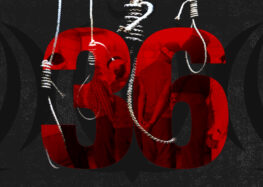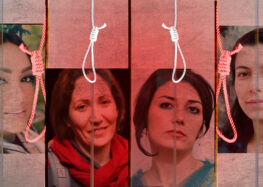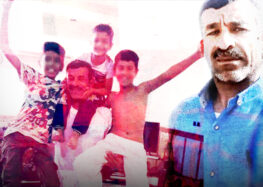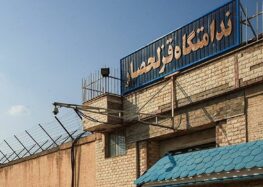Prisoner on Death Row Not Allowed to Attend Funeral of Grieving Father Who Committed Suicide
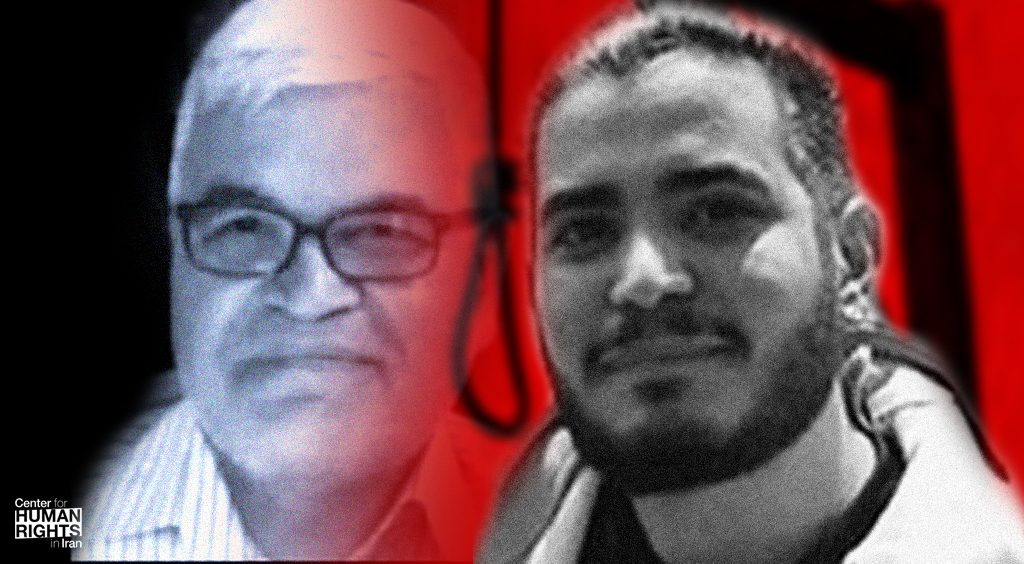 Father of Amirhossein Moradi Distraught Over His Son’s Unjust Death Sentence
Father of Amirhossein Moradi Distraught Over His Son’s Unjust Death Sentence
Iranian authorities have rejected requests by Amirhossein Moradi, who has been sentenced to death on a false murder charge, to attend the funeral of his father, Nasser Moradi, who committed suicide from grief over his son’s plight, the Center for Human Rights in Iran (CHRI) has learned.
“The father’s burial has been put on hold so that Amirhossein can attend but the authorities are saying that it cannot be arranged for security reasons,” Babak Paknia, Moradi’s attorney, told CHRI on September 30.
“They are afraid that if Amirhossein is there, the people might gather around him. They said we should go ahead with the funeral and afterward they would allow him to visit the grave and his home. We have been trying to get this kid to see his father for the last time before he’s buried but so far we have not succeeded.”
Furlough, or temporary release, is traditionally granted in Iran to prisoners to attend significant family events. However, this privilege is often denied to political prisoners.
Amirhossein Moradi, along with Saeed Tamjidi and Mohammad Rajabi, have been handed the death sentence for their participation in the November 2019 protests that swept through Iran. The sentences, upheld by Iran’s Supreme Court on July 10, 2020, are under judicial review.
The Iranian judiciary is increasingly handing down death sentences in political cases as domestic discontent has risen and the authorities seek to silence dissent. Most recently, the champion wrestler Navid Afkari, who had participated in protests in 2018, was executed for manufactured murder charges.
Father Was Distraught Over Prospect of Unjust Execution of Son
The body of Amirhossein’s father was found in the cellar of his home on September 28, 2020, after committing suicide, the Iranian media reported.
“Until the very last moment he was constantly talking about our son and wished they could all sit around the dining table again one day,” Amirhossein’s mother was quoted by Emtedad, a reformist news channel on the Telegram messaging app, on September 28.
“Amirhossein’s family has been under pressure for months,” Paknia told CHRI. “Naturally when your child is sentenced to death you feel the pressure and you’re not going to feel well mentally. On top of that, these (three) kids have been surrounded by lies about committing murder.”
He added: “We knew that the pressures will have a destructive and negative impact on the family and we have had conversations with them to calm them.
“When the death sentences went for judicial review, things were moving along and the authorities agreed to allow the attorneys to be involved in the case.
Execution of Navid Afkari Convinced Father that Son Will Also Be Executed Without Notice
“But then the family began to get phone calls and were told lies about the case and when Navid Afkari was executed (on September 12, 2020), they became scared that their son, too, would be hanged without prior notice.
“They were really worried and we calmed them down but again they received phone calls from abroad that the executions are going to be carried out, even though the Supreme Court has stopped the enforcement of the death sentences (pending the result of the judicial review).
“But the family was still very afraid and the pressures were building. My colleague went to Mr. Moradi’s home and talked to him for three hours and calmed him but ultimately the pressures were too much for the family to bear and that’s when the tragedy happened.”
Paknia said the death sentences against the three young men were currently being reviewed by Branch 1 of the Supreme Court, presided by Judiciary Chief Ebrahim Raisi.
“The review is almost complete and we’re waiting for the case to be referred to the Revolutionary Court, presided by two new judges,” he said.
“At least Judge (Abolqaem) Salavati and Judge (Mohammad Reza) Amouzadeh, who issued the earlier death sentences, will no longer be handling this case and that makes us optimistic.”
Read this article in Persian.

